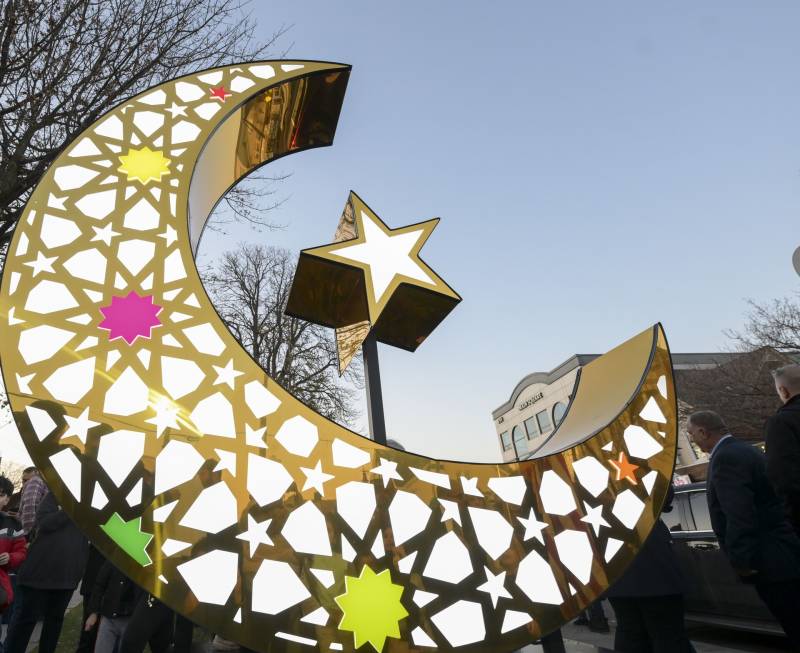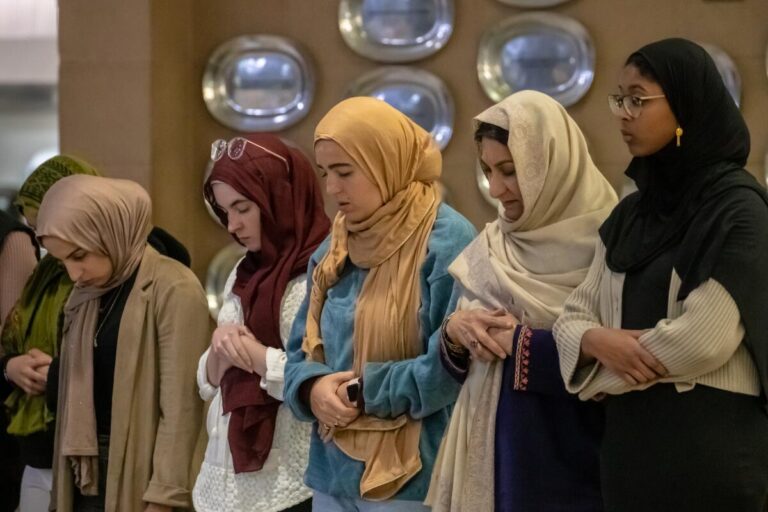As we delve into the rich tapestry of Islamic history, one question that often arises is – what event marks the beginning of the Muslim calendar? This pivotal point in time is none other than the Hijra, which signifies Prophet Muhammad’s migration from Mecca to Medina in 622 AD. The significance of this event reverberates through generations, not just as a historical milestone but as a spiritual journey that shaped the Islamic calendar. Understanding the Hijra allows us to grasp the profound significance it holds within the Muslim community, serving as a symbol of faith, resilience, and devotion. Let’s embark on a captivating exploration of the event that heralds the commencement of the Muslim calendar.
Introduction: Exploring the Muslim Calendar
The Muslim calendar, also known as the Islamic or Hijri calendar, follows a lunar cycle consisting of 12 months in a year of 354 or 355 days. The calendar is of great significance to Muslims worldwide and plays a pivotal role in determining religious practices and festivities.
The Hijra: A Historic Milestone
The event that marks the beginning of the Muslim calendar is the Hijra, also known as the migration of Prophet Muhammad (PBUH) from Mecca to Medina in 622 CE.
Islamic Months and Observances
The Islamic calendar begins with the month of Muharram and features important events such as Ramadan, Eid al-Fitr, and Eid al-Adha.
- Ramadan: A month of fasting and spiritual reflection
- Eid al-Fitr: Festival of breaking the fast
- Eid al-Adha: Festival of the Sacrifice

History and Origins of the Muslim Calendar
The Muslim calendar, also known as the Islamic or Hijri calendar, began with the migration of the Prophet Muhammad (pbuh) from Mecca to Medina in 622 CE. This event is known as the Hijra, which marks the beginning of the Muslim lunar calendar.
Significance of the Event
The Hijra not only symbolizes the beginning of Islamic history but also signifies a new era for Muslims, establishing the first Islamic state in Medina.
Features of the Muslim Calendar
The Islamic calendar is based on lunar cycles, with 12 months in a year totalling to about 354 days. Due to the shorter lunar year, it is about 10 to 12 days shorter than the Gregorian calendar.
- The first month of the Islamic calendar is Muharram.
- The most vital month in Islam, Ramadan, is observed during the ninth month of the calendar.

The Event Signifying the Beginning of the Muslim Calendar
One of the most significant events that mark the beginning of the Muslim calendar is the Hijra, also known as the migration of Prophet Muhammad from Mecca to Medina. This event, which took place in the year 622 CE, holds great importance in Islamic history and serves as the starting point of the Islamic lunar calendar.
Importance of Hijra in Muslim Calendar
The Hijra not only symbolizes a physical migration but also signifies a spiritual journey towards establishing a community based on faith and principles of Islam. It represents a new beginning and marks the foundation of the first Islamic state in Medina.
Observance and Commemoration
Each year, Muslims around the world commemorate the Hijra through special prayers, reflections on the significance of the migration, and acts of charity. This observance serves as a reminder of the courage and faith of the early Muslims who followed Prophet Muhammad in seeking a better future.

Significance and Observances of the Muslim New Year
The Islamic New Year, also known as Hijri New Year, marks the beginning of the Muslim lunar calendar. This event is observed by Muslims worldwide to commemorate the journey of Prophet Muhammad from Mecca to Medina, known as the Hijra. The arrival of the Islamic New Year signifies a time for reflection, gratitude, and spiritual renewal.
Observances and Traditions
During the Islamic New Year, Muslims engage in various religious activities, including fasting, prayers, and reciting the Quran. It is a time for self-evaluation, seeking forgiveness, and setting intentions for the upcoming year. This period encourages introspection and spiritual growth.
Community Gatherings
Many Muslim communities come together to share meals, exchange gifts, and perform acts of charity during the Islamic New Year. These gatherings foster a sense of unity and compassion among believers. Some mosques also organize lectures and discussions focusing on the significance of the event.
Cultural Traditions Associated with the Event
One of the significant cultural traditions associated with the event that marks the beginning of the Muslim calendar is the observance of fasting and prayer, particularly during the holy month of Muharram. This month holds special importance for Muslims globally as it commemorates the migration of the Prophet Muhammad from Mecca to Medina in 622 CE.
Traditional Practices
During Muharram, Muslims engage in acts of charity, self-reflection, and remembrance. It is a time for spiritual renewal and seeking forgiveness for past wrongdoings. Families come together to share meals and attend mosque services, fostering a sense of community and unity.
Many communities also organize processions and gatherings to honor the sacrifices made by the Prophet Muhammad and his companions during their migration. These events feature recitations of religious texts, poetry, and sermons that highlight the teachings of Islam.
Decorative Image: Muharram Observances
Comparison with Other Calendars
When it comes to comparing the Muslim calendar with other calendars, it is important to note that the Islamic calendar is a lunar calendar based on the cycles of the moon, unlike the Gregorian calendar which is a solar calendar. The Muslim calendar, also known as the Hijri calendar, consists of 12 months in a year of 354 or 355 days.
Gregorian Calendar
The Gregorian calendar, which is widely used globally, is a solar calendar based on the movement of the Earth around the Sun. It consists of 12 months in a year of 365 days, with an extra day added to February during leap years.
The Gregorian calendar is used for civil purposes in most countries and is the calendar commonly referred to for international business and communication.
Chinese Lunar Calendar
The Chinese Lunar calendar, on the other hand, is also a lunisolar calendar like the Islamic calendar. It is used for traditional festivals and determining auspicious dates for special events in Chinese culture.
Unlike the Muslim calendar that starts from the event of Prophet Muhammad’s migration from Mecca to Medina, the Chinese Lunar calendar is based on the cycles of the moon and sun.
Impact and Relevance of the Muslim Calendar Today
The Muslim calendar, also known as the Islamic or Hijri calendar, holds significant importance in the lives of Muslims worldwide. It marks the beginning of the Muslim era, known as the Hijrah, which started with the migration of Prophet Muhammad from Mecca to Medina in 622 CE.
Significance in Daily Life
The Muslim calendar governs religious practices, festivals, fasting periods like Ramadan, and crucial events such as Hajj pilgrimage scheduling based on lunar cycles.
Observing the Islamic New Year is a moment of reflection and renewal for Muslims globally.
Cultural Celebrations
The Hijri calendar not only aids religious observances but also reinforces cultural identity and community cohesion among Muslims.
- Muslim communities organize Eid celebrations to mark the end of Ramadan, promoting unity and solidarity.
Frequently Asked Questions
-
- What event marks the beginning of the Muslim calendar?
- The event that marks the beginning of the Muslim calendar is the Hijra, which refers to the migration of Prophet Muhammad (PBUH) from Mecca to Medina in 622 CE.
-
- Why is the Hijra significant for Muslims?
- The Hijra is significant for Muslims because it symbolizes a new beginning for the Muslim community, establishing a new social order and political system based on the principles of Islam.
-
- How is the Islamic calendar different from the Gregorian calendar?
- The Islamic calendar, also known as the Hijri calendar, is a lunar calendar based on the cycles of the moon, while the Gregorian calendar is a solar calendar based on the Earth’s orbit around the sun.
-
- What year is it in the Islamic calendar currently?
- As the Islamic calendar is shorter than the Gregorian calendar, the current year in the Islamic calendar is different. For example, 2021 in the Gregorian calendar may correspond to a different year in the Islamic calendar.
-
- Are there any specific rituals or practices associated with the start of the Islamic calendar year?
- While there are no specific rituals or practices associated with the beginning of the Islamic calendar year, Muslims may reflect on the significance of the Hijra and offer prayers for blessings and guidance in the new year.
Unveiling the Significance: Exploring the Beginning of the Muslim Calendar
In conclusion, the event that marks the beginning of the Muslim calendar holds profound significance in Islamic history. The migration of Prophet Muhammad (PBUH) from Mecca to Medina, known as the Hijra, not only marked a pivotal moment for Muslims but also established the basis for the Islamic lunar calendar. By understanding the importance of this event, we gain insight into the resilience and faith of the early Muslim community. The Hijra continues to serve as a reminder of the sacrifices made for the sake of faith and solidarity. Delving into the origins of the Muslim calendar provides us with a deeper appreciation for the rich history and spiritual heritage of Islam.

